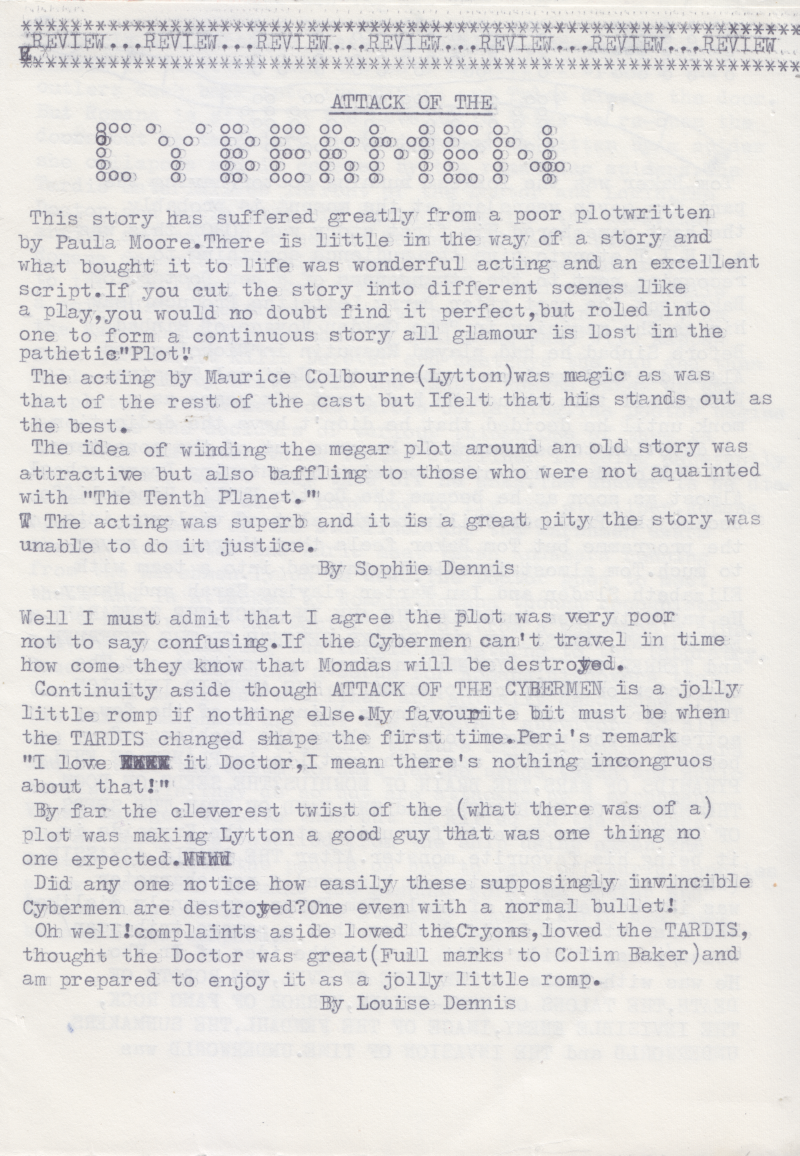Or possibly it should be "random visit to my brief fanzine making days". Reviews of
Attack of the Cybermen by myself and my sister from
The Web Planet.

I think we liked the episode more then than I do now and I'm mildly bemused by my categorisation of a typically violent and nihilistic Saward story as a "jolly little romp" - maybe I was fooled by all the bright colours?
Transcript (typos eliminated at random):
ATTACK OF THE CYBERMEN
This story has suffered greatly from a poor plot written by Paula Moore. There is little in the way of a story and what bought it to life was wonderful acting an an excellent script. If you cut the story into different scenes like a play, you would no doubt find it perfect, but rolled into one to form a continuous story all glamour is lost in the pathetic "Plot".
The acting by Maurice Colbourne (Lytton) was magic as was that of the rest of the cast but I felt that his stands out as the best.
The idea of winding the meagre plot around an old story was attractive but also baffling to those who were not acquainted with "The Tenth Planet."
The acting was superb and it is a great pity the story was unable to do it justice.
By Sophie Dennis
Well I must admit that I agree the lot was very poor not to say confusing. If the Cybermen can't travel in time how come they know that Mondas will be destroyed.
Continuity aside though ATTACK OF THE CYBERMEN is a jolly little romp if nothing else. My favourite bit must be when the TARDIS changed shape for the first time. Peri's remark "I love it Doctor, I mean there's nothing incongruous about that!"
By far the cleverest twist of the (what there was of a) plot was making Lytton a good guy that was one thing no one expected.
Did anyone notice how easily these supposedly invincible Cybermen are destroyed? One even with a normal bullet!
Oh well! complaints aside loved the Cyrons, loved the TARDIS, though the Doctor was great (full marks to Colin Baker) and am prepared to enjoy it as a jolly little romp.
By Louise Dennis
